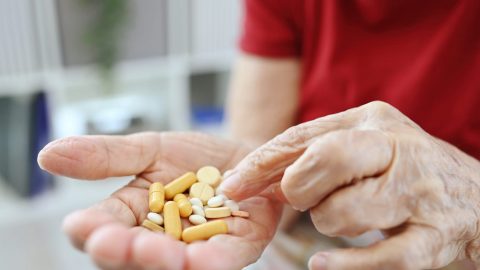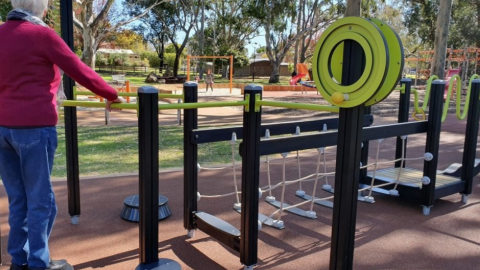Haemorrhoids can be a real pain in the… well, you know where. But with the handy tips in this article, relief is within reach!
Dealing with haemorrhoids is hard for anyone and can be disruptive to your daily life. So, in this guide, you’ll discover various practical, proven, and tailor-fit strategies to ease the discomfort. We cover everything from over-the-counter remedies to natural treatments and preventive measures. Whether dealing with occasional flare-ups or chronic pain, you’ll find the proper relief to improve your quality of life significantly.
It’s time to stop haemorrhoid pain from taking over your lifestyle and start reclaiming your comfort and well-being with these practical and safe methods.
Find Safe Relief Over the Counter
Over-the-counter (OTC) haemorrhoids medication offers accessible options for managing haemorrhoid pain safely. Topical treatments like creams, ointments, and suppositories containing ingredients such as hydrocortisone, witch hazel, or lidocaine can provide soothing relief. Hydrocortisone is a steroid that helps to reduce inflammation, while witch hazel and lidocaine anaesthetic ointment both provide soothing relief from itching and discomfort. You can apply these medications to the affected area to help alleviate symptoms and promote healing.
Fibre supplements and stool softeners promote smoother bowel movements, which ease strain during defecation and reduce the risk of worsening haemorrhoids.
It’s essential to consult with a healthcare professional before using any OTC medication, particularly if you have existing medical conditions or are taking other medications. This ensures compatibility and minimises the risk of adverse effects with your haemorrhoid medication. With proper guidance, you can find effective relief from haemorrhoid pain while ensuring your safety and well-being.
Incorporate Natural Remedies and Lifestyle Changes
The best treatments can also be found in your own daily routine. In addition to OTC and prescribed medications, you can opt for a more natural way of healing.
Sitz baths are a shallow warm-water bathing apparatus, or you can fill your bathtub only enough to cover your buttocks and anal area. These are a popular option which involves soaking the anal area in warm water for 10 to 15 minutes several times a day. By doing this, you will help reduce swelling and relieve pain. Applying witch hazel directly to the affected area can relieve itching and inflammation.
Aside from topical haemorrhoids medication, consuming a high-fibre diet rich in fruits, vegetables, and whole grains helps soften stools and can make bowel movements less painful. Staying hydrated by drinking adequate water throughout the day helps stools to pass more easily.
Good hygiene is vital. So, gently cleansing the anal area with mild soap and water after each bowel movement can make a difference. It’s also best to avoid harsh or scented products that may irritate the skin.
Regular physical activity, such as walking or gentle exercise, can promote healthy digestion and bowel function. Avoid prolonged sitting or standing, and take regular breaks and move around to help prevent haemorrhoids by reducing pressure on the anal area.
By incorporating these natural remedies and home treatments into your daily regimen, you’ll hopefully notice an improvement. Plus, you’ll likely reduce the risk of developing haemorrhoids and enjoy better digestive health.
Manage Pain During Haemorrhoid Inflammation
Sometimes, bouts of haemorrhoids can creep up on you at unexpected times, which can cause extreme discomfort. So, when this happens, you can use these pain relief techniques to alleviate the symptoms.
Cold Compression
Applying cold compresses or ice packs to the affected area during flare-ups can reduce swelling and numb the pain. Make sure to do this for short periods.
Over-the-Counter Pain Relievers
When haemorrhoids are inflamed, try OTC pain relievers such as paracetamol or ibuprofen. Make sure to consult with a healthcare professional before using these medications to ensure safety, especially if you have underlying health conditions or take other medications.
Relaxation and Deep Breathing Exercises
Experiencing the discomfort of haemorrhoids can be painful and stressful. So, practising relaxation and deep breathing exercises can alleviate some of that tension, which can exacerbate haemorrhoid pain.
Proper Hygiene
Maintain correct hygiene by gently cleansing the anal area with warm water. Remember to use soft, unscented wipes to prevent irritation and promote healing.
There is a silver lining in managing haemorrhoid discomfort. As long as you follow these pain relief techniques during flare-ups, brighter days may be on the horizon.
When to Seek Medical Advice for Haemorrhoid Pain
While you can effectively manage many cases of haemorrhoid pain at home, some situations require consulting a healthcare professional.
If the pain persists despite using over-the-counter treatments or home remedies, it’s time to seek medical advice. Also, if you have any pre-existing health conditions such as diabetes, cardiovascular disease, or compromised immune systems, you must consult your doctor before self-treating your condition. Certain medications or treatments may pose risks when taken together with existing prescriptions.
Be vigilant for signs of complications such as bleeding, excessive swelling, or the presence of a lump around the anus. These symptoms may indicate a more serious underlying issue, such as a thrombosed haemorrhoid or an anal fissure that requires prompt medical attention.
It’s essential to recognise when it’s time to turn it over to the professionals. By doing so, you can receive appropriate treatment and guidance in effectively managing haemorrhoid pain and helping to prevent potential complications.
Finding Comfort in Relief
Haemorrhoid pain is an uncomfortable experience that requires a multifaceted approach to prioritise safety, effectiveness, and comfort.
You have various options for reducing discomfort and improving your well-being, such as taking over-the-counter medications and natural remedies.
Knowing when to consult with medical professionals and integrating practical and preventive strategies into your daily routines will allow you to find relief from haemorrhoid pain.
Remember to listen to your body, prioritise self-care, and seek medical advice when necessary. With proper pain management techniques, you’ll feel better faster.















